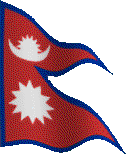|
Nepal’s
democratic
transformation
: From civil
war to
inclusive
peace, the
country has
travelled a
long road in a
remarkably
short time,
by SY Quraishi
(kp
13/01/2026)
The
Bhaktapur idol
scandal and
the rumors
that ‘killed’
Rupak Raj
Sharma, by
Nabin Aryal
(nn
10/01/2026)
Violations
of Nepal’s
airspace
during WWII :
Rana rulers
objected to
planes flying
overhead,
fearing
invasion or
divine anger,
by Bhaskar
Koirala (nt
09/01/2026)
On
national
reconciliation
: Across seven
decades,
reconciliation
has emerged as
Nepal’s
deepest
democratic
constant,
by Minendra
Rijal (kp
06/01/2026)
A
Chinese
contract
halted by
Rajiv Gandhi’s
letter, by
Nabin Aryal
(nn
03/01/2026)
Nepal’s
incomplete
revolutions :
Political and
democratic
movements of
the past
decades have
all fallen
short of
citizen’s
expectations,
by Sudiksha
Tuladhar (nt
02/01/2026)
Rishikesh
jailed after
clashing with
Tulsi Giri,
by Nabin Aryal
(nn
27/12/2025)
Of
heroes and
politicians :
Not all
political
leaders seek
to project
themselves as
heroes worthy
of the name,
by Abhi Subedi
(kp
21/12/2025)
The
Echo of 1954:
Why Nepal’s
India Policy
Keeps
Repeating Old
Mistakes :
Without
anchoring
foreign policy
in internal
legitimacy and
accountability,
this pattern
of hesitation
and drift will
continue,
by Kanchan Jha
(rep
17/12/2025)
Khampa rebellion
from the
Nepali
perspective
(rep
27/11/2025)
(book review)
The
day BP
defended
democracy with
a pistol,
by Nabin Aryal
(nn
08/11/2025)
When
the slogan was
raised in
Biratnagar–
‘We will claim
recognition
for Hindi
language’,
by Nabin Aryal
(nn
25/10/2025)
Forgotten
Hanumannagar,
by Dipak Aryal
(nn
24/10/2025)
How
Nepal
suppressed the
‘Khampa
Rebellion’,
by Rajendra
Kunwar (nn
23/10/2025)
How
the Prime
Minister tried
to remove King
Mahendra,
by Nabin Aryal
(nn
18/10/2025)
1952
Singha Durbar
incident:
Rebels tried
to capture
then–PM
Matrika
Koirala,
by Nabin Aryal
(nn
11/10/2025)
The
1960 coup was
designed in
Paris, by
Nabin Aryal
(nn
04/10/2025)
Oli had tried to
transfer power
to Deuba while
Gen-Z
protesters
besieged
Baluwatar
(kh
23/09/2025)
Recalibrating
Deterrence:
The Indo-Pak
Conflict and
Its Strategic
Fallout for
Nepal, by
Prayog Jung
Bahadur Rana
(rep
27/06/2025)
Nation
marks 24 years
since
Narayanhiti
Palace
massacre
(kh
02/06/2025)
The
Last Days of
the Khampa :
Meeting
General Wangdu
in Kathmandu
in 1974 before
his fate was
sealed, by
Lisa Choegyal
(nt
23/05/2025)
Biratnagar’s
chautari where
Nepal’s labour
movement began
: On May Day,
locals reflect
on the
birthplace of
the country’s
first
organised
workers’
protest,
by Parbat
Portel (kp
02/05/2025)
Towering
monument to
2015 : Ten
years later,
survivors of
the earthquake
recall the
destruction of
Kathmandu’s
iconic Dharara,
by Shristi
Karki (nt
26/04/2025)
Quest
for models in
politics and
art : If we
believe that
politics only
divides
people, it may
weaken our
literary
writing as
well, by
Abhi Subedi
(kp
13/04/2025)
Dolma
Maya Gole:
From guerrilla
fighter to
vice chair,
by Amrit
Chimariya (ok
14/03/2025)
Nepal’s
sixties,
reinterpreted
: The period
represents
changes in
political
order and the
rise of the
hippie
movement,
by Abhi Subedi
(kp
02/03/2025)
Kathmandu
During
1950-60s,
by Gautam
Banerjee (rn
07/02/2025)
Jimmy
Carter’s
legacy in
Nepal : Carter
was a beacon
of hope during
the country’s
tumultuous and
suspicion
filled
conflict
period, by
Bhojraj
Pokharel and
Ghanashyam
Ojha (kp
15/01/2025)
Manmohan
Singh And The
Churn In Nepal,
by YXubaraj
Ghimire (sp
10/01/2025)
The
humanitarian
with a heart
for Nepal :
President
Carter was
simple, had a
deep
understanding
about global
peace and
always
believed the
humanitarian
aspect should
be prioritised
for global
peace, by
Bekh Bahadur
Thapa (kp
31/12/2024), Remembering
Jimmy Carter :
Carter was a
man of decency
and integrity
who devoted
his life to
promoting
peace and
democracy,
by Kul Chandra
Gautam (kp
31/12/2024)
Poush
1: When King
Mahendra
staged coup
against
democracy
(kh 16/12/2024
The
Maoist attack
on Deuba,
by Dirgharaj
Upadhyaya (ae
26/08/2024)
Roads,
development
and
destruction,
by Hisila Yami
(ae
08/08/2024)
A
Treaty Without
Any Utility?,
by Dhruba Hari
Adhikary (rn
31/07/2024)
Achham
Durbar reconstruction nears completion :
The historical palace was severely
damaged when Maoist insurgents bombed it
in 2002 killing 122, including
officials, security personnel and
civilians, by Menuka Dhungana (kp
12/07/2024)
Researching
early twentieth-century lives : Historians have
not paid sufficient attention to the influences
and individuals at work in the frenetic decade,
by Pratyoush Onta (kp 05/07/2024)
Narayanhiti
Palace Massacre completes 23 years, tragic event
still shrouded in mystery (kh 01/06/2024)
Reflections
on 17 years since the “People’s War”, by
Gyanu Ghimire (kh 13/02/2024), “People’s
War” achievements are nation’s common assets: PM
Dahal (kh 13/02/2024) [What achievements? Social non-inclusion
persists, as does patriarchy; women are at best
second-class citizens, Dalits are discriminated
against and are victimised. Justice for the
victims of the insurgency is still denied. The
poverty rate is high. The constitution was
created by the traditional ruling male elite,
not by the inclusively elected representatives
of the people; promises made during the People's
War are often not honoured. The electoral system
is manipulated and abused. Civil liberties are
often restricted. The federal state exists
mainly on paper. Corruption is rampant and is
covered up by the political elite. The most
important achievement of the People's War
remains the abolition of the monarchy and the
Hindu state, but it is precisely this that is
increasingly being called into question. Support
for your party has fallen to a meagre 11 per
cent. Voters are simply fed up with narcissistic
politicians like Dahal, Oli and Deuba. How are
you going to change that?]
Conspiracy
Theories Galore, by Ritu Raj Subedi (rn
04/02/2024)
|

